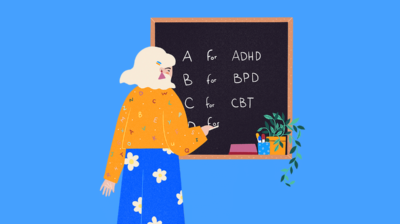Dealing with depression
Find information on how to support your overall wellbeing when experiencing depression or low mood.

Dealing with depression can be difficult, especially when you’re going through it alone. If you are feeling in need of urgent help or support, skip to accessing support services. Read on for some ways you might support your long-term wellbeing while experiencing low mood or depression.
This factsheet offers small, practical steps you can take that, over time, may help relieve feelings of low mood and depression. We have included a variety of steps to fit different needs, but you don’t need to try them all to find relief. Taking a slow, steady approach can reduce the risk of becoming overwhelmed as you figure out where to start. There is no magic bullet for depression, but consistently taking enough of these small steps at your own pace can make a real difference to your quality of life.
Here, you’ll find information that covers:
Maintaining relationships
Trying peer support
Being active
Sticking to a routine
Trying something new
Seeking professional help
How to manage depression or low mood
Maintain and strengthen your relationships
Reaching out to people close to you, like friends or family, can make a real difference when you’re feeling low. It’s important to talk to someone you trust—just having your experience heard and validated can help in itself.
If you’re finding it hard to stay connected due to low motivation or anxiety about social situations, here are some small, manageable steps you can take:
- Send a quick message to a close friend or family member just to check in, or reply to a message you haven’t had the energy to get back to
- Schedule a short call with someone you trust, even if it’s only for a few minutes
- Meet with a trusted person in a comfortable setting, like your home or a quiet place where you feel safe
- Start with one person—focus on reaching out to just one friend rather than multiple people
- Use online messaging or social media to stay in touch if face-to-face feels too difficult
These small steps can help you stay connected without feeling overwhelmed.
Try peer support
Peer support can be incredibly beneficial for those dealing with depression. Connecting with others who have similar experiences can create a sense of understanding and belonging that often feels hard to find. Sharing your struggles in a supportive environment can validate your feelings and remind you that you’re not alone in your journey. Hearing how others cope with their challenges can also inspire you to try new strategies for recovery. For some people, this mutual support can help them stay hopeful and motivated in relation to their recovery. In this non-clinical setting, people may feel comfortable knowing that everyone is on equal footing. Whether through online groups or in-person meetings, peer support offers a compassionate space for sharing, learning, and growing together.
Below are some organisations that offer support groups and the opportunity for peer support:
Aware run face-to-face, phone-in & Zoom peer groups for people experiencing depression, bipolar disorder, other related mood conditions. You can contact Aware’s helpline from 10am-10pm daily, on 1800 80 48 48, to get more information about depression, mental health and support available.
Shine provides safe and recovery-orientated community-based peer support groups for people over the age of 18 experiencing mental health difficulties, as well as for their family members. Their groups are facilitated by paid Shine peer facilitators who have their own lived experience as well as extensive training and knowledge in recovery. Shine has a range of in-person support meetings weekly.
Grow Mental Health runs peer support groups where a community of people who have experienced mental health challenges or struggles come together at a weekly support group and share their own stories in a safe and confidential setting. Visit Grow’s website to find a support group near you.
Be active
If you can, try to engage in regular exercise and spend some time outside, even if it’s just for short periods each day. When you’re experiencing low mood or depression, it’s common to feel less motivated to be physically active. However, exercise can lead to improvements in mood and a person’s sense of emotional wellbeing.
However, becoming more active doesn’t have to mean a complete overhaul of your routine. Start small—consider easing into a 10 to 15-minute walk in an area that feels comfortable or familiar to you. Gradually increasing your activity level can help improve your mood and energy without feeling overwhelming. Remember, small steps count, and the goal is to find movement that feels good for you.
Stick to a routine
Sticking to a routine can help ensure that you meet your basic needs, even when you’re feeling low or experiencing depression. Although it may be challenging to maintain these routines during periods of low mood and decreased motivation, doing so can prevent further declines in your physical and mental well-being.
Here are some basic needs that can benefit from having a routine. While many of us are aware of these needs, recognising and committing to them is often a crucial step in building a solid foundation for recovery:
- Eating regular nutritious meals: Aim for balanced meals to nourish your body and mind
- Drinking water regularly: Staying hydrated is essential for overall health, so make a habit of drinking water throughout the day
- Going to bed at the same time each evening: A consistent sleep schedule can improve your sleep quality and overall mood
- Waking up at the same time each morning: This helps regulate your body’s internal clock and can lead to better energy levels throughout the day
- Making your bed each morning: This small task can create a positive sense of momentum and keep your space pleasant to be in
- Going outside at least once a day: Even a brief time spent outdoors can improve your mood and provide a change of scenery
- Moving or exercising three times per week: Regular movement, even in small amounts, can have a positive impact on your mood and energy levels
Try something new
Sticking to a routine can be helpful, especially in the early stages of recovery. However, trying something new can also benefit your mood and motivation. This could involve trying a new hobby, getting involved in a community project, volunteering, or joining a sports club.
When tackling big life situations feels overwhelming, it can help to try to focus on something smaller, like building with Lego or solving puzzles. Mastering these activities can help you feel more confident in your abilities, and this, in turn, can help with facing bigger challenges.
If daily tasks, like maintaining personal hygiene, still feel challenging, it might be wise to start small. Instead of committing to joining a hobby group, consider exploring the hobby from the comfort of your own bed or home first.
Here are some creative activities you might try:
- Singing
- Creative writing
- Drawing or painting
- Making a collage
- Puzzles or colouring books
- Crafting
- Listening to podcasts or audiobooks
Remember, putting too much pressure on yourself to commit to a new activity or to become skilled at a new hobby can lead to feelings of defeat and decreased motivation. Setting realistic, manageable goals can help you avoid this, while also improving your mood and boosting your confidence. Practising self-compassion regularly can support you in the process of setting realistic, achievable goals.
Seek professional help
If you feel the need for professional support, it’s best to speak to your GP first. They can discuss your treatment options with you, including several free and low-cost options for talk therapy, as well as medications. If you would like to learn more about the types of medications your GP might prescribe, take a look at our articles on mental health medications and antidepressants.
Below are some support options you might consider as part of your recovery journey.
Talk therapy
Counselling and psychotherapy are examples of talk therapies that provide a safe space for individuals to explore their thoughts, feelings, and behaviours. By engaging in talk therapy, individuals can gain insight, develop coping strategies, and work towards improved mental well-being.
There are a wide range of therapies available, including cognitive-behavioural therapy (CBT), psychodynamic therapy, and humanistic therapy, among others. You can reflect on what kind of therapy might suit you by taking a look at our article on different types of psychotherapy. Regardless of what therapy you choose, it’s important that you see an accredited and fully qualified psychotherapist. Read more on how to access private counselling and psychotherapy in Ireland.
Voluntary organisations and helplines
Some services that can help are listed below.
- Aware provides information and support to people affected by mental illnesses such as depression, bipolar and mood-related conditions. Contact their helpline from 10am-10pm daily on 1800 80 48 48
- Jigsaw is a free counselling and mental health service for young people aged 12-25. You can connect with a Jigsaw clinician online Monday and Wednesday from 1- 4.30 pm and Thursday from 2-7.30 pm. Jigsaw offers in-person counselling in their local centres
- Samaritans is a free, confidential listening service. You can contact them on 116 123, 24 hours per day
- Childline is a free, confidential listening service for people under 18. You can contact them 24 hours per day on 1800 666 666
- Traveller Counselling Service is a free counselling service for Travellers going through any sort of difficulty. You can contact them on 086 308 1476
Social prescribing
Social prescribing is an approach that connects individuals with community-based services and activities to improve their well-being. Instead of traditional medical treatments, social prescribing encourages participation in social activities, support groups, or local projects that align with a person’s interests and needs. This peer-based and informal setting can provide therapeutic benefits, such as reducing feelings of isolation, fostering a sense of community, and improving a person’s overall sense of wellbeing. Social prescribing can also offer a great way of making friends. Some examples include:
- Foróige Youth Clubs are a safe place for young people to hang out, meet new friends, get involved in activities and have a voice. If you are aged 12-18, there are lots of different clubs and activities you can get involved in. If you’re over 18 you can also volunteer with Foróige
- Men’s Sheds are community-based projects, where men can come together to learn, share skills and make long-lasting friendships together. They have groups all over the country
- Macra na Feirme are a community of 17-40 year olds from 170 clubs in rural Ireland. They aim to create a community of rural youth and young farmers where you will be welcomed into a fun, vibrant community, access personal development opportunities and have your voice heard. There are annual membership fees to join, starting as low as .67c per week
- Volunteer Ireland and Activelink are organisations highlighting volunteer opportunities in your area. Getting involved in local charities could give you the ability to connect with new people in your community and build confidence through developing new skills
For more tips and information on managing low mood, check out our everyday tips for coping with depression.
Feeling overwhelmed and want to talk to someone?
- Get anonymous support 24/7 with our text message support service
- Connect with a trained volunteer who will listen to you, and help you to move forward feeling better
- Whatsapp us now or free-text SPUNOUT to 50808 to begin.
- Find out more about our text message support service
If you are a customer of the 48 or An Post network or cannot get through using the ‘50808’ short code please text HELLO to 086 1800 280 (standard message rates may apply). Some smaller networks do not support short codes like ‘50808’.






